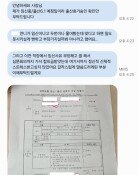[Editorial] With Powell out and Rice in
[Editorial] With Powell out and Rice in
Posted November. 16, 2004 23:06,
U.S. Secretary of State Colin Powells resignation signals a change in the U.S. administrations foreign policies. In the case of the State Department, it is estimated that Deputy Secretary Richard Armitage and Assistant Secretary for East Asian and Pacific Affairs James Kelly, the top delegate in the six-way talks, will also step down. As a nation that cooperates with the U.S. on many pending issues including the North Korean nuclear issue and the relocation of the USFK, Korea is virtually greeting a new partner. As the core lineup for Americas foreign affairs and security is changing, it would be wise to expect changes rather than consistent policies and take measures to prepare for them.
The range of change in the policy towards North Korea is a matter of the greatest interest. That is why the Korea-U.S. summit slated to be held in three days is all the more important. In the first meeting between the heads-of-state since President Bushs reelection, the two presidents must decisively set a direction for the future. For the summit to be productive, the two leaders should call for the peaceful resolution of the North Korean nuclear issue and establish measures that can lead the North to engage in dialogue. It cannot be stressed too often that the six-party talks is the best means in resolving the nuclear issue.
It is true that with the re-election of President Bush and the resignation of dovish Secretary Powell, concerns are growing regarding the U.S. unilateralism and hard-line stance in foreign affairs. The U.S. troops attack on Fallujah, Iraq, adds fuel to such concerns. If the leaders of the U.S. and Korea could resolve to exclude the use of arms against the North as an option based on President Roh Moo-hyuns speech in Los Angeles, such action would go a long way in bringing stability to the Korean Peninsula.
The nomination of White House National Security Advisor Condoleeza Rice as Secretary of State may not be bad news for Korea. She has played the role of an intermediary between the hawkish Neo-cons and the doves, namely Powell. The six-way meeting was the result of compromise. The Korean government should also have no difficulties in making new preparations as it has been in contact with Rice for nearly two years.
Even if the underlying tone of U.S. foreign policies changes, the policy towards the Korean Peninsula should maintain its former framework. If the U.S. talks of change, the Korean government should prevent any sudden changes by providing grounds to stay the course. Regarding the North Korea nuclear issue, if the U.S. takes on an active attitude as it launches a new line-up for diplomatic and security matters, the problem may be solved at an earlier period of time.
Headline News
- N. Korea launches cyberattacks on S. Korea's defense companies
- Major university hospital professors consider a day off each week
- Italy suffers from fiscal deficits from ‘Super Bonus’ scheme
- Inter Milan secures 20th Serie A title, surpassing AC Milan
- Ruling and opposition prioritize spending amid tax revenue shortfalls







